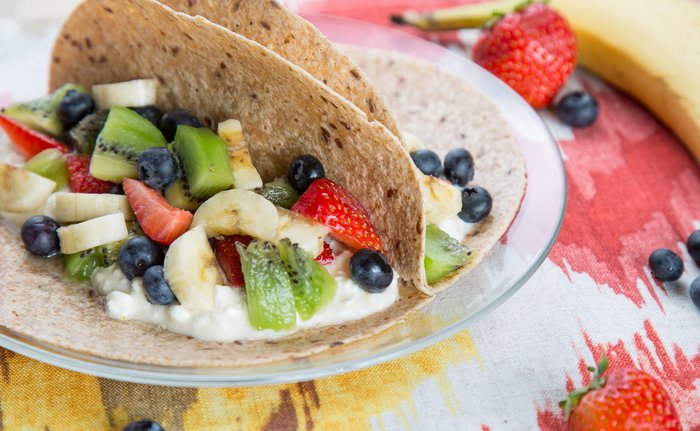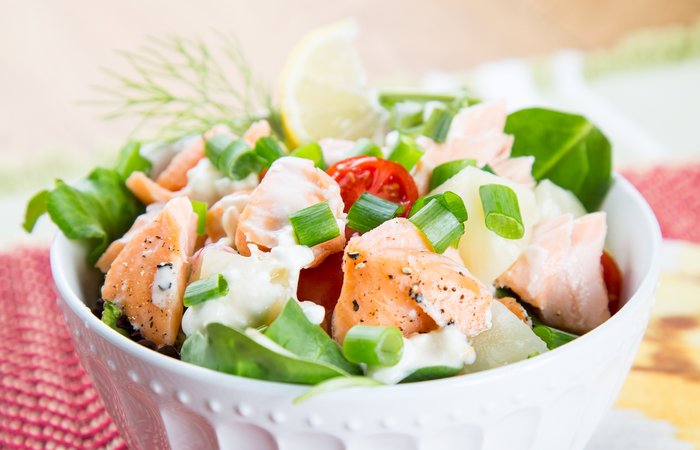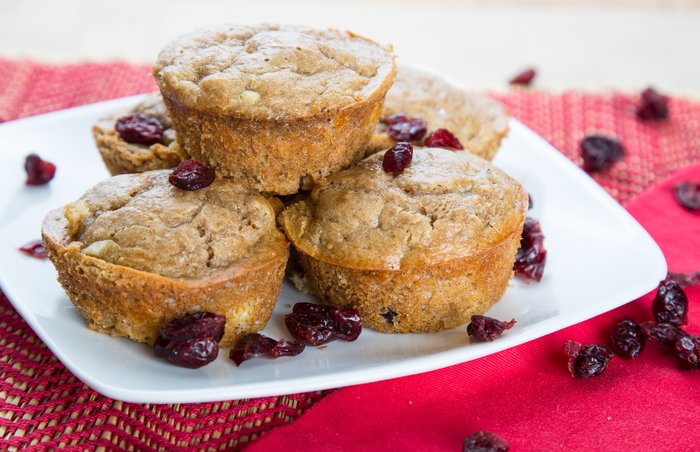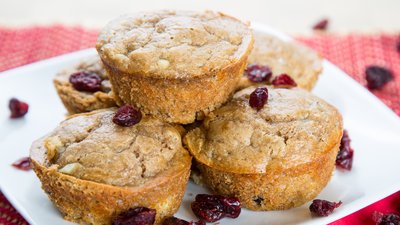3 Ways to Eat Chocolate | 3 Ways to Eat Cottage Cheese | 3 Ways to Eat Peanut Butter | 3 Ways to Eat Lentils | 3 Ways to Eat Bananas | 3 Ways to Eat Avocados | 3 Ways to Eat Winter Squash | 3 Ways to Spice Up Meals
"Little Miss Muffet, sat on a tuffet, eating her curds and whey," goes the nursery rhyme. Who knew that Miss Muffet was into chasing gains? Those chunky curds and smooth whey she was spooning down were the lumps and liquid found in cottage cheese, which continues to be one of the best foods around for building lean muscle and strong bones.
A Steady Source of Muscle-Building Protein
With roughly 27 grams of protein in a single cup, cottage cheese has long been known among the fitness crowd as a rich source of this muscle-friendly macronutrient. But it doesn't provide just any protein. Cottage cheese contains a wealth of slow-digesting casein protein, which means the amino acids found in casein can supply your body with a steady supply of muscle-building fuel. That's why an evening snack of cottage cheese is such a great way to encourage muscle recovery and growth during sleep.
In a study published in the journal Medicine and Science in Sports and Exercise, athletes who worked out in the evening were given a serving of casein protein 30 minutes before they went to bed. The athletes experienced an uptick in muscle protein synthesis during the night, compared to when they took a placebo instead.
Riboflavin Keeps Your Metabolic Engine Turning
Cottage cheese also contains a lot of riboflavin, which helps metabolize the very protein found in cottage cheese itself. Your body needs riboflavin, also known as vitamin B-2, to turn these proteins, as well as carbohydrates and fats, into energy.
The thing about riboflavin is that it's water soluble, so your body can't store if for very long. You need to replenish it every day by eating riboflavin-rich foods like cottage cheese. Men need 1.3 milligrams of riboflavin daily, while the women need 1.1 milligrams each day. A cup serving of cottage cheese provides about 0.4 grams of this important nutrient.
Triple Protection for Strong Bones
Cottage cheese also contains two important bone builders, calcium and phosphorus. Most people understand the role calcium plays in keeping your skeleton dense and strong. Fewer may know that phosphorus helps out by enabling the creation of hydroxyapatite, a vital structural component of bone tissue.
Beyond providing these two nutrients, cottage cheese further supports bone health by providing a healthy dose of protein, which boosts bone mineral density.
New Ways to Eat Your Curds and Whey
Most people just pop some cottage cheese in a bowl and call it good. Some go so far as to add it to their smoothies and shakes. But this nutritional giant can star in all sorts of sweet and savory dishes. When you buy cottage cheese, keep in mind several points:
- Some brands can contain nearly 700 milligrams of sodium in a cup serving. There are some lower-salt versions available now, but the extra salt can be useful after a particularly sweaty workout.
- Cottage cheese is usually available with 0-percent, 2-percent, and 4-percent fat levels. A half-cup serving of fat-free cottage cheese provides about 80 calories and 0 grams of fat. The 2-percent version delivers roughly 90 calories and 2.5 grams of fat. The 4-percent version contains 120 calories and 5 grams of fat.
Some people may like the calorie saving that you get from nonfat cottage cheese. Others will find that the extra bit of fat in other versions makes it more filling. Perhaps 2 percent is a perfect meeting ground.
Fruit Salad Cottage Cheese Breakfast Tacos
Slathered with zesty cottage cheese and piled high with fruit salad, these sweet tacos will have you jumping out of bed in the morning. Add a sprinkling of granola for some crunch. These tacos can also serve as a healthy dessert or even a post-workout treat. The cottage cheese mixture and fruit salad can be made a few days in advance and chilled.

Salmon Salad with Cottage Cheese Dressing
Crunchy veggies, buttery salmon, and a creamy cottage cheese dressing make for a crave-worthy salad. This salad packs enough protein to make it extra filling and leave your muscles fueled and ready to perform later in the day.

Peanut Butter Protein Muffins
Beyond infusing these guilt-free muffins with protein, cottage cheese makes them extra moist without the need for extra oil. The peanut butter powder and dried cherries make the muffins taste like everyone's favorite schoolyard sandwich.


